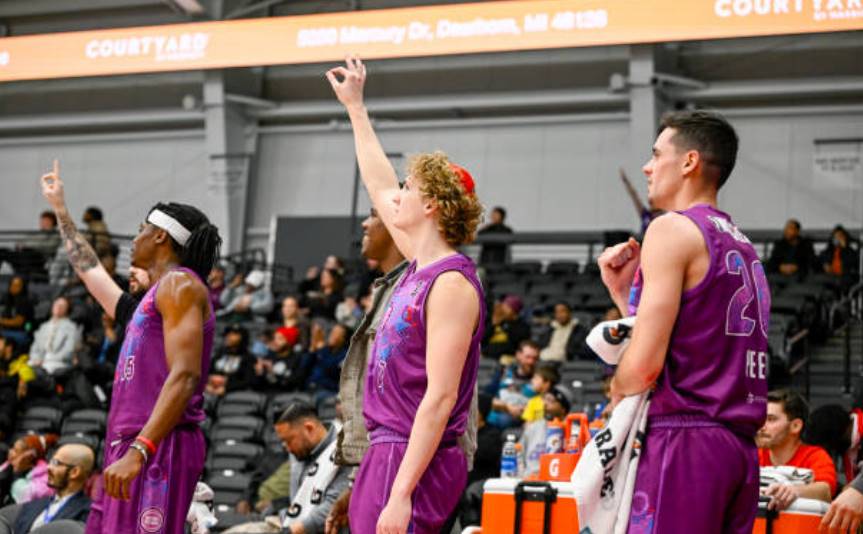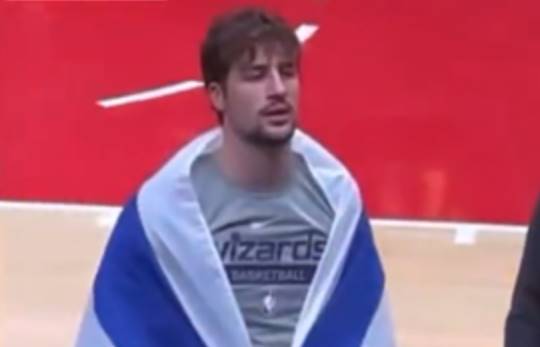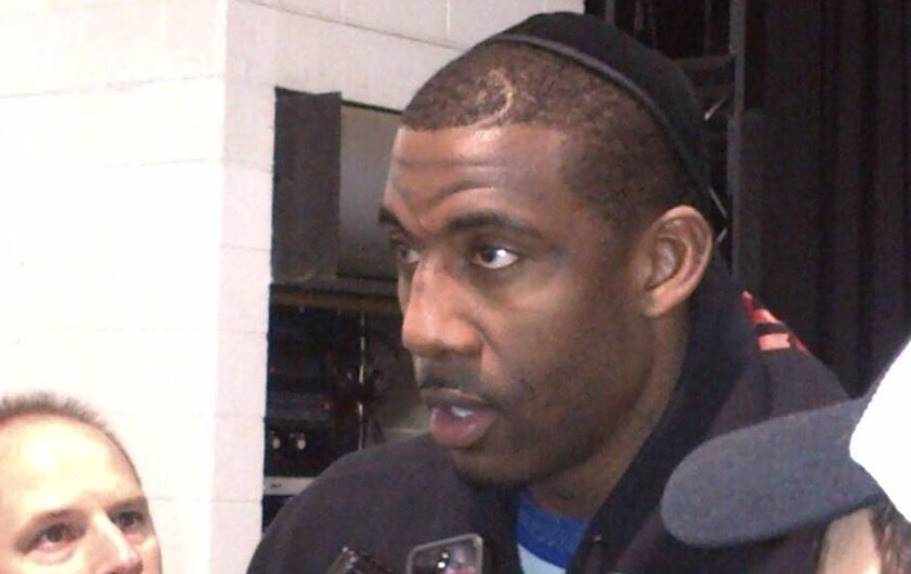
Has there ever been a Jewish basketball player in the NBA?
Has there ever been a Jewish basketball player in the NBA? Yes, there has been and there are currently a few. But never a visible observing or orthodox one on the NBA basketball court. But there might be soon as a religious orthodox Jewish player performed super well to close out the season for a G League team (the league below the NBA).
In the dynamic world of professional basketball, where every dribble, pass, and shot can sway the course of a game, athletes often become symbols of inspiration, representing various facets of society. Among these diverse representations are athletes who proudly embrace their religious identities, even on the hardwood courts of the NBA.
Tell me more
Seeking to become the NBA's first Orthodox Jew, Turell's journey is not just about basketball but about breaking barriers and inspiring others to embrace their identities while pursuing their dreams. Despite facing challenges, including injuries and setbacks, Turell's determination remains unwavering. Playing in the G League for the Motor City Cruise (affiliate of the Detroit Pistons), Turell showcases his skills and commitment to the game, even in the face of adversity. His journey is not defined solely by statistics but by the resilience and passion he brings to the court.
While his season averages may not grab headlines, Turell's standout performances, such as his remarkable game on March 29, 2024, demonstrate his potential.
With 34 points, 6 rebounds, and 2 assists, Turell proved his ability to make an impact when given the opportunity. His dedication to the game extends beyond the stat sheet, as evidenced by his leadership and determination to succeed.
Are there Jewish players in the NBA right now?
Jewish Current NBA Players
Domantas Sabonis
Domantas Sabonis, the Lithuanian-American NBA star, is making headlines not only for his prowess on the court but also for his journey towards Judaism. Married to Shashana Sabonis, he's delving into Jewish studies with dedication, regularly engaging with Rabbi Erez Sherman and embracing Jewish practices such as keeping kosher and observing Shabbat. Despite the demands of his basketball career, Sabonis is committed to his learning, although some mitzvot remain challenging due to his schedule.
His wife Shashana Sabonis (née Rosen) is Jewish. “We really haven’t talked about it [publicly],” she said in an interview this week. “He loves [Judaism] and really wants to be a part of it.”
Supported by his wife and the Jewish community, Sabonis has found a sense of belonging and representation within basketball. The couple's involvement in Jewish traditions, including celebrating holidays and participating in community events, showcases their commitment to their faith. With Sabonis leading the Sacramento Kings into the playoffs, his dual journey as a basketball star and a prospective member of the Jewish faith adds a unique dimension to his narrative, capturing attention both on and off the court.
Deni Avdija

Amari Bailey
Charlotte Hornets Amari Bailey is also Jewish. Despite his public presence as a rising basketball star and the son of model and influencer Johanna Leia, Bailey's Jewish background wasn't widely known until his agent confirmed it ahead of the draft. Raised in a family with Jewish roots on his mother's side, Bailey's identification as Jewish adds another layer to his multifaceted identity. While the extent of his connection to Judaism remains uncertain, anecdotes from his time training at Shalhevet High School suggest a familiarity with Jewish culture, reflecting a possible aspect of his upbringing that deserves further exploration.
Beyond his on-court abilities, Bailey's acknowledgment of the influence of his single mother underscores the importance of family and resilience in shaping his character, resonating with audiences beyond the realm of sports.
Jewish Former NBA Players
Ossie Schectman
Oscar Benjamin "Ossie" Schectman holds an iconic place in basketball history as the first official Jewish NBA player. Born to Jewish immigrants in Brooklyn, New York, in 1919, Schectman's journey to becoming the inaugural Jewish NBA player began in the bustling streets of his hometown. Excelling at Samuel J. Tilden High School and later under the guidance of renowned coach Clair Bee at Long Island University, Schectman's collegiate success culminated in national championships, laying the groundwork for his groundbreaking professional career. Transitioning to the professional realm with the Philadelphia Sphas of the American Basketball League, Schectman's true moment of glory came in 1946 when he etched his name in the annals of sports history by scoring the first basket in the inaugural season of the Basketball Association of America (BAA), which would evolve into the NBA. This pivotal moment not only marked a new era in basketball but also solidified Schectman's status as the first Jewish NBA player, blazing a trail for generations of Jewish athletes.
Schectman's legacy as the first Jewish NBA player extends beyond mere statistics or awards; it's rooted in his unwavering determination and resilience in the face of adversity. Despite injury setbacks during his tenure with the New York Knicks, Schectman's impact reverberated throughout the basketball community, inspiring future generations of Jewish players to pursue their dreams with passion and tenacity. Beyond his playing days, Schectman's influence endured, as he continued to contribute to the game's growth and success with teams like the Paterson Crescents. His pioneering spirit and commitment to breaking down barriers serve as a timeless reminder of the transformative power of sports to unite, inspire, and propel individuals to greatness. Ossie Schectman's legacy as the first Jewish NBA player will forever be synonymous with courage, perseverance, and the enduring spirit of the game, leaving an indelible mark on basketball history for generations to come.
Amar'e Stoudemire
One such symbol of religious pride is Amar'e Stoudemire, a former NBA All-Star who, despite the fast-paced nature of the game, never shied away from showcasing his Jewish faith. Stoudemire, known for his powerful dunks and tenacious rebounding, also gained attention for his off-court embrace of Judaism. The towering forward, who played for several teams including the Phoenix Suns, New York Knicks, and Miami Heat, openly wore a yarmulke, also known as a kippah, in various settings.
Stoudemire's choice to wear the yarmulke, a symbol of reverence and humility in Jewish tradition, was a testament to his deep connection to his faith. Whether attending synagogue, community events, or even casual outings, Stoudemire's commitment to his religious identity remained unwavering, serving as an inspiration to many.
Amar’e Stoudemire wore a yarmulke before a Knicks game once openly and publically. He sported a black velvet yarmulke (AKA kippah) while addressing reporters during a morning shootaround.

While Stoudemire's on-court attire did not include the yarmulke, his off-court presence resonated strongly with Jewish communities around the world. His unapologetic embrace of his faith within the context of a predominantly non-Jewish professional sports league highlighted the importance of representation and diversity in sports.
Jordan Farmar
Another NBA player who proudly wore his Jewish identity is Jordan Farmar, a skilled point guard who showcased his talents for teams such as the Los Angeles Lakers. Farmar, like Stoudemire, openly identified with his Jewish heritage, although he did not wear the yarmulke during gameplay. Nevertheless, his acknowledgment of his faith contributed to the narrative of Jewish representation in professional sports.
Final Thoughts
The absence of players visibly wearing a yarmulke during NBA games reflects practical considerations inherent in the sport. But that won't stop Ryan Turell should he make it to the NBA.
Beyond the individual actions of players, the presence of Jewish athletes in the NBA underscores the league's commitment to diversity and inclusivity. As a platform with global reach, the NBA serves as a stage where athletes from diverse backgrounds can proudly represent their identities and inspire others to do the same.
